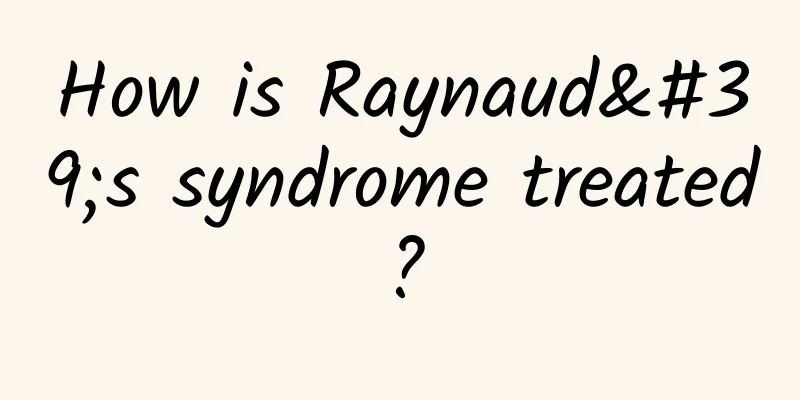How is Raynaud's syndrome treated?

|
Many people don't know much about Raynaud's syndrome, which is a peripheral vascular disease. Patients often suffer from the disease due to coldness. In addition, some people may develop the disease if they are mentally nervous or emotionally excited. When patients develop this disease, they must receive timely and good treatment, such as plasma exchange therapy, limb negative pressure therapy, etc. 1. Anesthesia therapy Brachial plexus block, lumbar, buttocks, lower limb nerve block, stellate ganglion block, thoracolumbar sympathetic nerve block. 2. Limb Negative Pressure Therapy The patient takes a sitting position and the affected limb is placed in a negative pressure chamber. The treatment pressure is -8.6 to -13.3 kPa for upper limbs, generally -10.6 kPa; and -10.6 to -17.3 kPa for lower limbs, generally -13.3 kPa. Once a day, each time for 10 to 15 minutes, 10 to 20 times as a course of treatment, an average of 14 treatments. The treatment principle is that negative pressure causes the blood vessels in the lower limbs to dilate, overcoming the contraction of vascular smooth muscles and causing continuous dilation of the arteries. 3. Plasma exchange therapy Can reduce plasma viscosity. 500 ml of blood is drawn daily, or 350 to 1000 ml is drawn 1 to 2 times. If the amount removed is less than 1 L, 2 to 2.5 L of artificial plasma can be used to replace it. If the amount removed is larger, fresh plasma or albumin isotonic solution must be used. Once a week, for a total of 5 times, the therapeutic effect can last for at least 6 weeks. If a blood cell separator is used, only the plasma can be removed, retaining the blood cells, resulting in better therapeutic effects. 4. Surgical treatment 1. Indications: ①Disease course>3 years; ②Severe symptoms affecting work and life; ③Sufficient course of drug treatment is ineffective; ④No abnormalities found in immunological examination. 2. Method ① Sympathectomy. For upper limb lesions, upper thoracic sympathectomy can be considered; for lower limb lesions, lumbar sympathectomy can be performed. The therapeutic effect can last about 2 to 5 years. ② Micro sympathetic denervation around the palm and digital arteries. 5. Biofeedback therapy This method is to use special equipment to detect and amplify the biological information that is normally imperceptible or difficult to perceive in the body, and convert it into signals through a recording and display system, so that the patient can feel these functional changes, thereby enabling him to associate some of his own senses with body functions and regulate these functions to some extent. |
>>: How to self-diagnose high-level water rupture
Recommend
What are the medicines that can unclog pores?
We all know that there are some pores on the skin...
What are the Chinese patent medicines for treating rhinitis caused by wind and cold?
Patients with rhinitis usually have symptoms such...
What to do with anal prolapse? What medicine to use?
Don't worry if you have rectal prolapse. You ...
What are the symptoms of Yin deficiency and heat?
Yin deficiency and internal heat are also known a...
How to tell if a man has strong sexual function
Is a man’s sexual ability good or not? Is it real...
Side effects of drospirenone ethinyl estradiol tablets
When women reach their childbearing age but do no...
Chinese medicine for lowering creatinine
Traditional Chinese medicines that can lower crea...
How do moles come about?
Hemorrhoids are a relatively common anorectal dis...
How to calm down and relieve internal heat during the Grain in Ear season
Many people want to calm down and relieve their a...
What are the effects of vitamin E on the skin?
Vitamin E is a nutrient element needed by the hum...
The best way to remove scars
If you are not careful in your daily life, you ma...
How long after miscarriage can I have scraping?
In modern life, people are more concerned about t...
What are the ingredients of Traditional Chinese Medicine Constipation Intestinal Cleansing Patch?
In modern society, people's pace of life is c...
When is the best time to do moxibustion?
In traditional Chinese medicine, Yang Qi is the f...
How to nourish the lungs and clear lung toxins? Eating five foods is the most reliable
In life, when people nourish and cleanse the lung...









